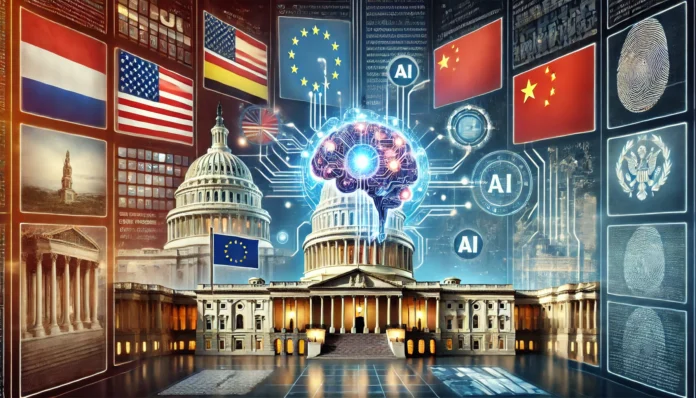As artificial intelligence (AI) technologies advance rapidly, nations worldwide are grappling with the challenges of regulating their development and use. Recent events highlight the complexities and differing approaches countries are taking to address AI’s ethical, legal, and societal implications.
UK House of Lords Advocates for AI Transparency
On May 12, 2025, the UK’s House of Lords passed an amendment to the data bill requiring AI companies to disclose any copyrighted content used in training their models. This move aims to protect creators’ rights and ensure transparency in AI development. The amendment faced opposition from the government but was supported by prominent artists and organizations concerned about the exploitation of creative content.
US Leadership Changes Spark AI Deregulation Concerns
In the United States, President Trump’s dismissal of Shira Perlmutter, head of the U.S. Copyright Office, shortly after her critical report on AI’s use of copyrighted material, has raised alarms about potential deregulation. The report questioned the legality of AI companies’ reliance on fair use and proposed licensing mechanisms. Critics argue that the firing undermines the independence of the Copyright Office and favors tech industry interests.
UN Addresses Autonomous Weapons Regulation
At the United Nations, delegates convened on May 12, 2025, to discuss the regulation of autonomous weapons powered by AI. Despite the increasing deployment of such systems in conflicts, binding international standards remain absent. The UN Secretary-General has set a 2026 deadline for establishing clear regulations, but consensus among major powers like the U.S., Russia, China, and India remains elusive.
Diverging Global Approaches to AI Governance
These developments underscore the divergent paths nations are taking in AI governance. While the UK pushes for greater transparency, the U.S. appears to be moving toward deregulation. Internationally, the lack of consensus on autonomous weapons highlights the challenges of establishing global AI standards.
As AI continues to permeate various aspects of society, the need for cohesive and ethical regulatory frameworks becomes increasingly urgent. Balancing innovation with responsibility will be crucial in shaping the future of AI.




